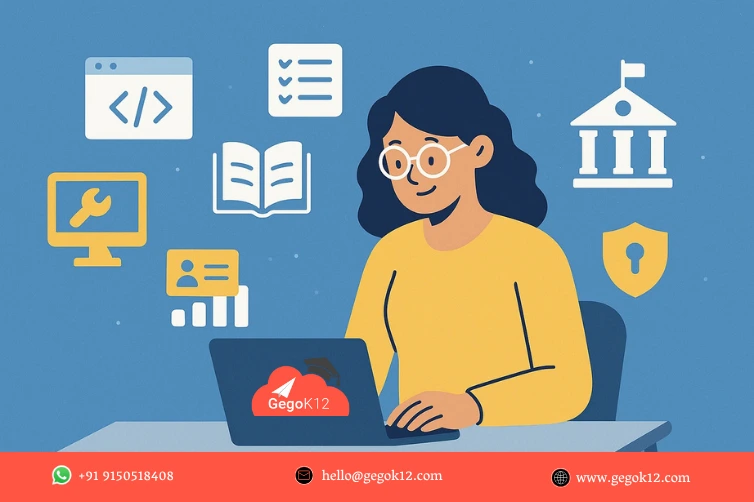Introduction: A Shift in How Schools Operate
In today’s digital-first world, education is no longer confined to classrooms and chalkboards. Schools around the globe are embracing technology to streamline administration, improve communication, and enhance learning outcomes. But while digital transformation is essential, many educational institutions – especially smaller schools or those in developing regions – struggle with the cost of commercial software solutions.
This is where free open-source school management tools are stepping in to revolutionize the landscape. They offer not only cost-efficiency but also the freedom to adapt and scale systems to a school’s unique needs.
The Problem: High Cost of Proprietary School ERPs
Commercial school ERP software often comes with:
- Expensive annual licenses
- Per-student pricing models
- Vendor lock-in
- Limited customization
- Hidden costs for training and support
For many schools, especially public or low-budget private institutions, these costs are simply unsustainable. The need for modern digital tools clashes with financial reality, creating a gap between aspiration and implementation.
What Are Free Open Source School Management Tools?
Free and open-source school management tools are software platforms released under licenses that allow users to:
- Access and modify source code
- Install and run the system without license fees
- Customize features to suit their institution’s requirements
Unlike closed-source software, where features are rigid and upgrades depend on the vendor, open-source tools empower schools to take ownership of their digital infrastructure.
Why They Are the Future
1. Affordability at Scale
Open source eliminates licensing fees, making high-quality ERP systems accessible to even the smallest institutions. Whether a school has 50 or 5,000 students, the cost to use the software remains zero.
2. Full Control & Customization
Schools can tailor modules like attendance, exams, report cards, or fee collection to match local policies or educational structures. This flexibility is especially crucial for schools in different countries with varying academic systems.
3. Community-Driven Innovation
Most open-source projects are supported by global communities of developers, educators, and contributors. This leads to continuous improvements, feature additions, and better security—not tied to one vendor’s roadmap.
4. No Vendor Lock-In
Institutions are not bound to a single provider. If needed, they can switch developers, host the system on-premises or on any cloud platform, and evolve with changing technologies.
5. Security and Transparency
Since the source code is public, vulnerabilities are identified and patched faster. Schools also know exactly what data is being collected and where it is stored, enhancing privacy compliance.
How Open Source Tools Like GegoK12 Are Leading the Way
GegoK12 is an emerging example of how open-source ERP can deliver real value to educational institutions:
⚙️ Modular Design
Includes Admissions, Timetable, Attendance, Exams, Grades, Fees, and Communication – all packaged into a clean Laravel-based system.
💻 Self-Hosted
Schools can deploy the platform on their own servers or private cloud for full ownership.
📱 Mobile-Ready
Built for modern devices, ensuring both staff and parents have access on the go.
🛠️ Developer-Friendly
With open APIs and source code available, it’s easy for technical teams to integrate or extend the system.
Advantages at a Glance
- ✅ Zero Licensing Costs
- 🔐 Enhanced Privacy Controls
- ⚡ Quick Customizations
- 🌍 Global Community Support
- 🧩 Easily Add New Features
- ☁️ Cloud or On-Prem Hosting Flexibility
FAQ
1. Is open-source school software really free?
Yes. While setup and customization may incur costs (e.g., developer time or hosting), there are no license fees.
2. Do open-source tools lack support?
Not necessarily. Projects like GegoK12 offer detailed documentation and a growing community. Plus, schools can hire local developers for dedicated help.
3. Is it safe to use open-source ERP in schools?
Open-source tools are often more secure due to transparency. Regular updates and community audits ensure reliability.
4. What technical skills are required to use GegoK12?
Basic server knowledge is helpful for setup. Once installed, the UI is user-friendly for non-tech staff.
5. Can I migrate from an existing ERP to an open-source one?
Yes. Data migration tools and custom scripts can help transition from legacy systems to open-source platforms.
Final Thoughts
Looking to modernize your school operations without breaking your budget?
Explore GegoK12 – the free, open-source school management solution built to grow with you.

